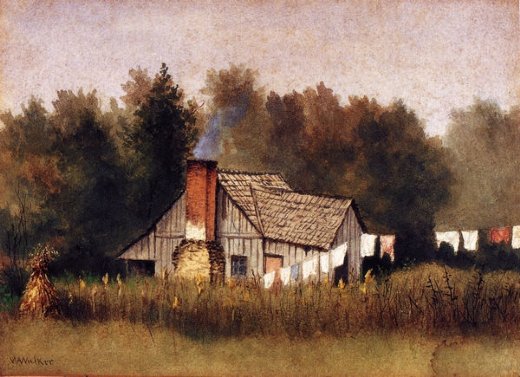Of the twelve agrarians who wrote the, symposium
I’ll Take My Stand,
only three are alive: Robert Penn Warren, the poet and novelist, Lyle
Lanier, a psychologist and former executive vice-president of the
University of Illinois, and myself, a writer and reader of fiction. I
don’t presume to speak either for Warren or Lanier, and I don’t know how
to address myself to myself in the past tense. Perhaps I am not here at
all. Secretly I’ve had the feeling I was killed at the Battle of
Brice’s Cross Roads, taking the bullet meant for General Forrest. You
understand it was Forrest who, if he’d been let, could have been
decisive in winning the War of the Northern Rebellion. Too often
Confederate forces won the field only to retreat later on. Brice’s Cross
Roads, fought in Mississippi, was a perfect battle.
Whoever wins an internecine war writes the history of that war. And,
the textbooks as well. Lost in diaries and obscure histories there were
too many stories about the settlements in Middle Tennessee, both of
Indians and Americans, which would have told our young of stamina and
courage. The attack on the stations around Nashville, the skillet and
the kettle at a bend in the Tennessee River, or an account of that one
man Spencer who lived in the arm of a hollow sycamore, alone during the
hardest winter that country had known, with only half a skinning knife
for protection and food. It must have been some tree, for he was so big a
man, a French trader seeing his footprints jumped into the Cumberland
River and swam away. He thought he was fleeing a monstrous bear. Later
at a militia muster Spencer intervened between two young men who were
fighting. One tried to get rough with him, whereupon he picked him up
and threw him over the nine foot fence surrounding the stockage.
The man
called back, “If you will just throw my horse over, Mister Spencer,
I’ll be getting on my way.” There are a number of these tales, and they
carry the truth about a history, the quality of a tradition, as well as
more formal documents.






